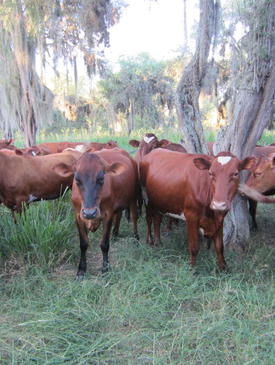Tropical Forest Restoration in Human Dominated Landscapes of Brazil
Summary
In Latin America and around the world, tropical forests are rapidly disappearing and, along with them, a variety of environmental services that maintain the diversity of life on this planet are being lost. As the damaging effects of deforestation are being observed world-wide, there has also been increasing interest in the conservation and restoration of tropical forests. Understanding the ecological processes that relate to forest functioning can guide decision-making and the development of strategies for effective forest restoration and sustainable land management.
This online course seeks to provide an introduction to the concepts and techniques needed to design and implement strategies for the restoration of forests and ecosystem services in multi-use landscapes. The course is designed for practitioners and professionals working for government agencies, NGOs, and the private sector looking to advance their knowledge about tropical forest ecology and restoration through a series of presentations, discussions, and activities that guide the development of a restoration management plan. Additionally, this course offers the opportunity for participants to meet and share experiences, concepts, and tools with each other, the ELTI facilitators and guest experts.
Content
The material is divided into thematic modules, each one lasting a week. The participants are free to complete their assignments according to their own schedules within that week. During the course, the participants will complete exercises that guide the development of a management plan for a specific restoration site. It is ideal (although not required) that the participants have a tropical site that is relevant to their personal or professional interests about which they can direct the concepts learned in each module. At the end of the course, each participant will receive a certificate of completion.
Thematic modules
- Week 1: Ecology and natural regeneration of tropical forests
- Week 2: Effects of anthropogenic disturbance on regeneration
- Week 3: Strategies to catalyze restoration in the tropics
- Week 4: Influence of socio-political factors on restoration
- Week 5: Monitoring and follow-up of restoration projects
- Week 6: Development of a preliminary restoration management plan
Educational tools
- Interactive presentations that provide a synthesis of the core concepts of each week;
- Pre-recorded guest lectures that simultaneously depict the video and audio of the guest speaker along with the PowerPoint slides;
- Optional and required readings to complement the presentations;
- Case studies providing restoration examples in Panama and Mexico;
- Two optional discussion sections conducted live with guest experts;
- Weekly short answer assignments which evaluate the participant’s understanding of the content; and
- Discussion forums for individual and group work towards the creation of a final project: a preliminary management plan for restoration on a site of professional interest.
In addition to the discussion forum, the work toward the final project includes one site visit, feedback from the guest expert, the peer-to-peer exchange of drafts, and literature searches using ELTI’s Tropical Native Species Reforestation Information Clearinghouse.


